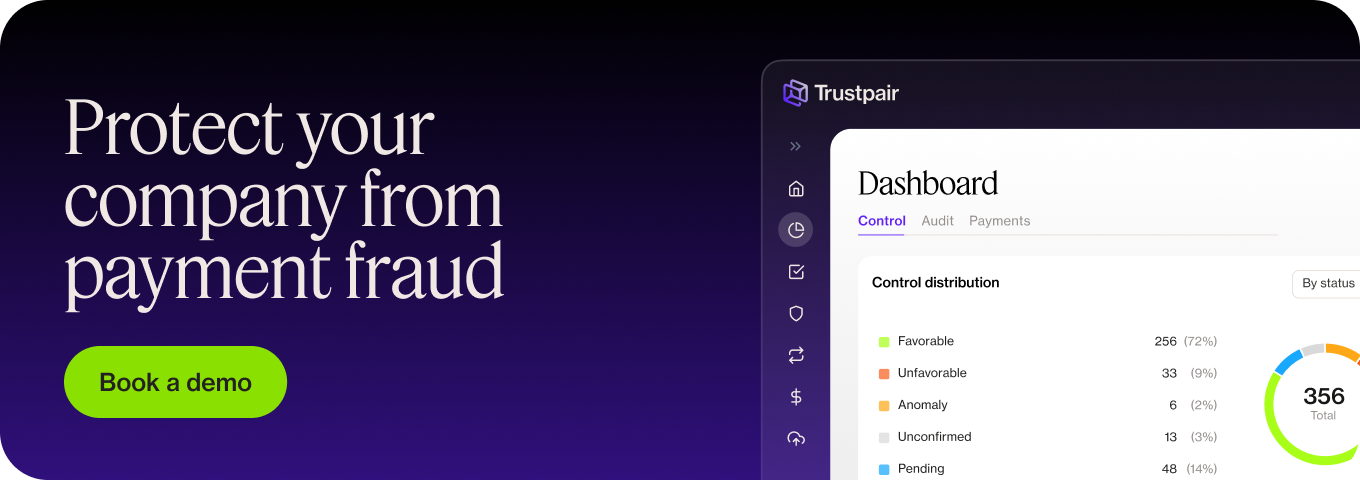Corporate fraud can happen in any size company in any sector. It can even take down conglomerates, like Enron, or worsen an emerging crisis in a sector and accelerate global recession, as with the Lehman Brothers collapse in 2008. The longer fraud remains undiscovered the higher the potential losses are likely to be.
Any fraud can cost a lot more than the amount of money stolen. Regulatory, legal, and reputational costs can far exceed the initial amount discovered.
What is corporate fraud?
Corporate fraud is fraud committed against or by a business by a member or members of the organisation itself. It takes many forms, from individuals embezzling client or company money, to deliberate attempts by businesses to misrepresent company financial accounts or hide problems.
What motivates corporate fraud?
Greed or fear are often at the heart of fraud, both on an individual and company level. But there must also be the opportunity to commit fraud.
- Greed: an individual may steal money, for example, to buy material possessions. Traders might use a client’s money to try and make some for their own account, intending to replace it, thinking no one will ever know. Individuals (whether the top management is aware of it or not) might deliberately misrepresent sales, or they might alter figures in accounts to make a company appear more profitable.
- Fear: individuals may embezzle money to cover bills they are worried about. Traders might hide losses because they are afraid of the consequences and illicitly use more to try and make it back. Employees might falsify sales data if they are under intense pressure to produce unsustainable returns and fear for their jobs.
- Opportunity: as well as intent there must be opportunity to allow fraud to become a reality. Without seeing an opportunity many people might not even consider defrauding their company. If a person spots a loophole, or company practice means they can expect to remain undetected, someone with the motivation may see fraud as an option. The opportunity might be enough to make the leap to committing fraud.
How corporate fraud works
Corporate fraud is often incredibly complex. It could involve one person or many but fraud involving several people acting complicitly to commit fraud can be extremely far-reaching. As can the consequences. Perpetrators will often use confidential information or their access to assets or funds. Legitimate business practices can often hide or obscure fraud, making it harder to detect.
- Accounting fraud
False accounting can occur on various levels.
- It could be a rogue trader trying to make money for his own account or trade his way out of losses, like Nick Leeson. He was ultimately responsible for Barings Bank declaring bankruptcy in 1995.
- A department might inflate sales to win bonuses or justify their jobs.
- Management accounts may be falsified to mislead investors or manipulate share prices. The Enron scandal in 2001 saw the company hiding bad debt and inflating earnings, as well as pressuring their accounting firm, Arthur Andersen, to sign off their accounts.
This led to the collapse of both Enron and Arthur Andersen. Enron shareholders lost USD 74 billion in the four years leading to its bankruptcy, and employees lost billions in pension benefits.
- Hiding problems
A company may wish to disguise problems with a product or a service to avoid regulatory issues or further costs. The car manufacturer, Volkswagen, added software to diesel cars in the US to detect test conditions. This changed their normal performance to a mode giving lower emissions readings. It has so far cost them USD 30 billion and could cost more.
- Diverting funds
If a company claims to have invested money but has used it for other purposes, this is fraud.
How to prevent fraud and detect it early
No company will ever entirely eradicate fraud risk. However, preventing and detecting fraud tend to go together. Good practice, company culture and controls, training, robust systems, and regular audits and assessments of fraud risk will all help reduce the risks. And by utilising all the tools at their disposal properly a company should be able to detect fraud faster.
Company culture should be open and ethically sound. Fraud risk awareness training should be mandatory and regular, and anything flagging warning signs monitored and investigated. Systems and controls should be robust and as much opportunity removed as possible.
Software can add an extra layer of security. For example, Trustpair’s Payment Security system runs an automatic check of payment files and detects suspicious behaviour. Vendor Master File Management continually enriches and corrects third-party bank data. Our account validation check increases security as well as reducing time and money costs.
Find out more about how our software can help reduce your company’s risk. Contact us to request a demo now!
Key Takeaways:
- Corporate fraud is committed against or by a company by one or more employees
- The cost is not limited to the amount stolen
- Trustpair software will give extra security and peace of mind





